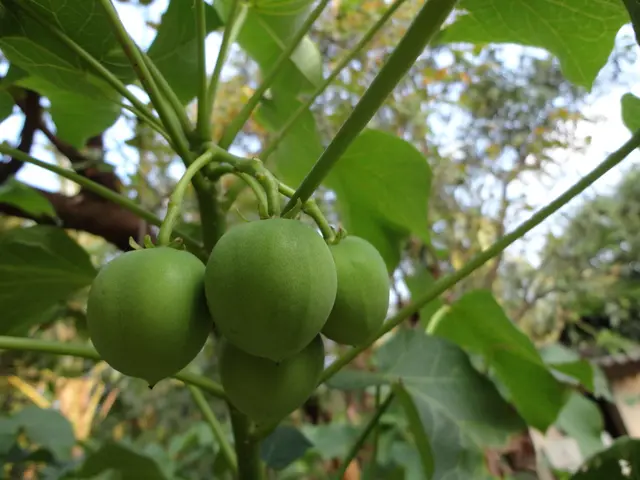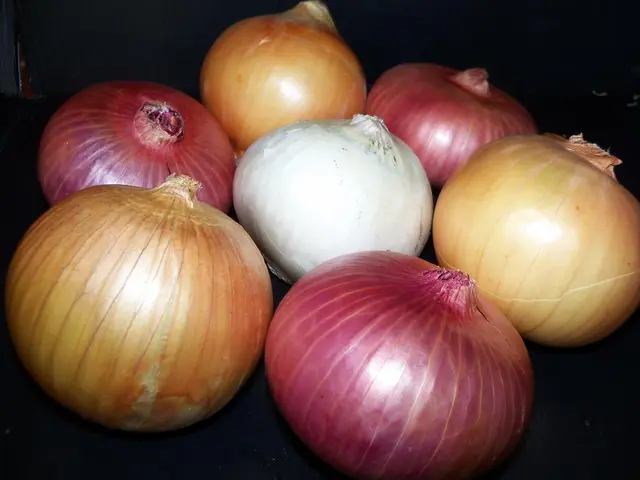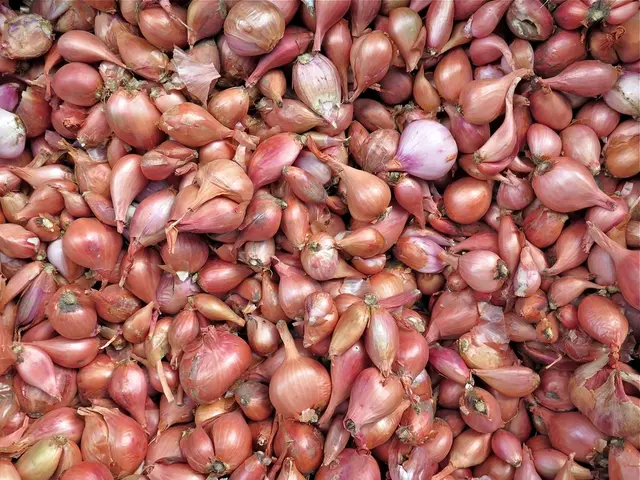4 Strategies for Organic Garden Development without Toxic Chemicals
Say Goodbye to Pesticides, Hello to a Thriving Garden
Watch the surprise on people's faces when they ask about the insects in my garden and I proudly announce, "I don't use pesticides."
Of course, I clarify that I'll turn to organic pesticide methods only in extreme cases, but generally, I've managed to grow a successful garden with no chemical aids.
So, how is this possible?
I do believe a bit of luck is involved, but I can pinpoint four factors I'm convinced have played a significant role in my insect-free paradise.
Beneficial Insects Galore
Call me optimistic, but I believe in the perfect garden—one where nature, given the chance to thrive, takes care of most major pest issues.
Consider aphids, for instance. Although they can cause massive destruction, they also have plenty of natural predators. I've never had major problems with aphids, attributing it mainly to my bustling ladybug population, along with other beneficial insects like lacewings and syrphid flies—many of which you may not even notice. These beneficial insects feast on aphids.
But if aphids do get out of control, check out ** organic aphid control methods**.
I also allow vegetables to flower and go to seed, which draws in beneficial insects. When a carrot, onion, cilantro, basil, or any other plant past its harvestable stage sends up a flower stalk, it may not look appealing, but if it attracts an army of beneficial insects, it stays.
In my opinion, ditching the pesticides means that the good insects that prey on the bad ones can flourish. After all, any effective predator needs prey, right? If we get rid of all the bad bugs, what will the good ones eat, and when we need them the most, they're nowhere to be found.
Note: Some of the links below may contain affiliate links, which means if you click through and make a purchase, I receive commission at no additional cost to you.
Healthy Plants
In essence, healthy plants can withstand minor attacks from pests. To promote healthy plants, I only use organic fertilizer and work on enriching the soil rather than feeding the plants with artificial fertilizers.
According to Michael Pollan's book In Defense of Food, gardens fed with chemical fertilizers aren't as resilient to pest attacks as those grown under organic conditions.
I also work to create an environment where the plants aren't unduly stressed. For instance, I mulch deeply to control moisture, preventing both drought stress during dry periods and moisture overload during wet ones.
A trick I've learned to hasten the growth of healthy plants is to plant crops at the optimal time. For example, one year I planted red beans shortly after the first frost passed. Just a row over, I planted green beans—with similar growth habits—a few weeks later. The red beans struggled with the fluctuating temperatures and rain, but the green beans grew larger than the earlier-planted red ones. It's easy to spot which plant is under stress.
Natural Repellents
There's plenty of buzz in the gardening world about certain plants repelling certain pests, but not much scientific evidence has been found to back it up. However, I've noticed some plants do seem to help deter pests. I can't say for certain, but I do know when I plant basil near my tomatoes, I don't have problems with the tomato hornworm.
Research Plan Companion Planting for Pest Control
Embrace the Creepy Crawlies
Spiders, snakes, and toads detest the enemies of my vegetables and fruits. When I spot a spider, I cheer. I know they're beneficial for my garden, and they get to stay. If I see a snake, I might shudder, but if it's a harmless garden snake (which it always has been), it stays, too. Toads are always welcome in my garden, and I leave them alone.
Don't forget, just a single application of glyphosate (the active ingredient in Round-up) can wipe out this crucial population.
When Pests Overrun
You're probably wondering then, do I have no pest problems? Yes, I've had pest problems. My worst predicament has arrived in the form of the squash vine borer, which has claimed almost every one of my squash, zucchini, and pumpkin plants.
I'm still experimenting with different prevention methods, but I've learned to plant several squash and zucchini scatterings throughout the season, and I've discovered that late plantings miss the squash vine borer's life cycle in my area.
I also faced challenges with the Colorado Potato Beetle during my first two years. Hand-picking the beetles and squashing their eggs on the leaves by hand resulted in the best results. In the last five years, I haven't seen a beetle one. I'm still puzzled about that, but I'll take it. My only thought is perhaps my abundant bird population snatches them up before I even see them.
It all boils down to accepting some damage in the name of upholding the little ecosystem thriving in my garden. A healthier garden equals a more likely self-sustaining garden free of pesticides.
Share on Facebook, Twitter, Pinterest, Email, or WhatsApp
Free Resources
I'm proof that a beginner can cultivate a rewarding garden. And I want to help you cultivate yours.
Claim the FREE Guides Now
- Organic gardening involves encouraging the presence of beneficial insects like ladybugs, lacewings, and syrphid flies to control pests naturally, rather than relying on pesticides.
- To promote healthy plants, I use organic fertilizer, enrich the soil, and aim for the optimal planting time to avoid undue stress, which can make plants more resistant to pests.
- Certain plants, such as basil, seem to repel certain pests, although more research is needed to confirm this, and I find it beneficial to experiment with companion planting for pest control.
- Embracing natural pets like spiders, snakes, and toads can help control pests in the home-and-garden lifestyle, but be mindful of pesticide use, as it can harm these beneficial creatures.








